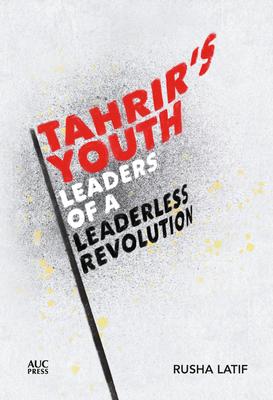
January 25, 2011, was a watershed moment for Egypt and a transformative experience for the young men and women who changed the course of their nation's history. Tahrir's Youth tells the story of the organized youth behind the mass uprising that brought about the spectacular collapse of the Mubarak regime. Who were these activists? What did they want? How did the movement they unleashed shape them as it unfolded, and why did it ultimately fall short of its goals?
Rusha Latif follows the trajectory of the movement from the perspective of the Revolutionary Youth Coalition (RYC), a key front forged in Tahrir Square during the early days of the revolt. Drawing on firsthand testimonies and her own direct experience, she offers insight into the motives, hopes, strategies, successes, failures, and disillusionments of the movement's leaders. Her account details the challenges these activists faced as they attempted to steer the movement they had set in motion and highlights the factors leading to their struggle's defeat, despite its initial promise.
Tahrir's Youth questions the belief that Egypt's revolution was spontaneous and leaderless. Timely and necessary, this study not only illuminates the uprising's leadership dynamics but also demonstrates the need for imagining new modes of revolutionary organizing for the twenty-first century.
January 25, 2011, was a watershed moment for Egypt and a transformative experience for the young men and women who changed the course of their nation's history. Tahrir's Youth tells the story of the organized youth behind the mass uprising that brought about the spectacular collapse of the Mubarak regime. Who were these activists? What did they want? How did the movement they unleashed shape them as it unfolded, and why did it ultimately fall short of its goals?
Rusha Latif follows the trajectory of the movement from the perspective of the Revolutionary Youth Coalition (RYC), a key front forged in Tahrir Square during the early days of the revolt. Drawing on firsthand testimonies and her own direct experience, she offers insight into the motives, hopes, strategies, successes, failures, and disillusionments of the movement's leaders. Her account details the challenges these activists faced as they attempted to steer the movement they had set in motion and highlights the factors leading to their struggle's defeat, despite its initial promise.
Tahrir's Youth questions the belief that Egypt's revolution was spontaneous and leaderless. Timely and necessary, this study not only illuminates the uprising's leadership dynamics but also demonstrates the need for imagining new modes of revolutionary organizing for the twenty-first century.
Hardcover
$35.00